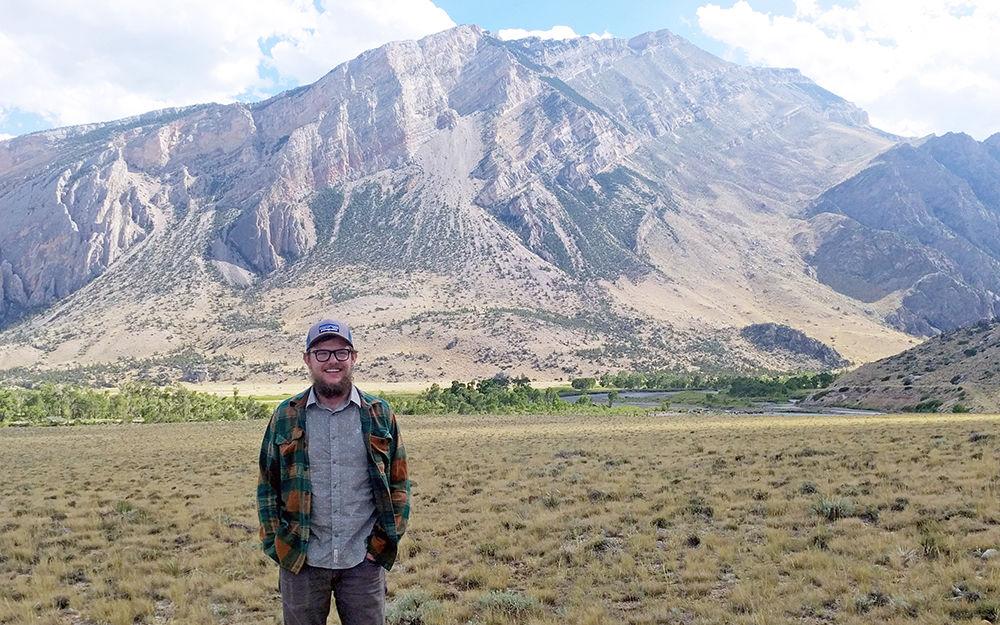Corbin Kling, a Ph.D. student studying planetary geology, has won a NASA Earth and Space Science Fellowship, which aims to support graduate students who are working on basic and applied research in the fields of earth science and space science.
Kling was one of only 33 students in the country chosen for the honor. Technician spoke with him about how he plans to use the fellowship, what he is doing in his studies and advice he has for other students.
When did you first become interested in studying planets and the solar system? Has this been a lifelong interest of yours?
Since I was a kid, I really enjoyed learning about the planets and space in general. I took a trip to Huntsville Space Center when I was in elementary school and the gentleman leading our tour told us that we would be the generation to go [to] Mars. That was a moment that I will never forget, but [I] never thought that I would end up studying the planets.
Fast forward to my geology undergraduate at the University of Georgia, when I had the opportunity to work with a planetary scientist from the Smithsonian on Mars analogs in Hawaii, and I knew that I was never going to be able to get away from planetary geology. That experience led me to getting my masters at UGA studying tectonics on Mars and now to NC State to continue my studies as a Ph.D. student.
Can you tell me a little bit more about what you are studying? In a nutshell, what is planetary geology?
I am studying a geologic feature that has been recognized on many of the bodies in the solar system: pit craters. These are not craters that are made from an impact of a meteorite; rather they are from a combination of tectonic and volcanic processes.
Planetary geology in a nutshell is the study of geology across a variety of bodies within the solar system. The goal of planetary geology is to study the geology of all the planets so that a broader sense of the processes that happen in the solar system can be understood.
I am part of the Planetary Research Group within the marine, earth and atmospheric sciences department, and we study a wide range of geologic processes that affect other planets in our solar system as well as Earth.
What does your research focus on? How will this fellowship aid you in your research?
Specifically, my research will involve mapping Noctis Labyrinthus on Mars, a very prominent feature that is dominated by pit craters. This mapping will lead me to structural analysis of the region to determine its formation history. I will also utilize drones to map two analogs on Earth, one in northern Iceland and one at Craters of the Moon National Monument and Preserve in Idaho, that are expressions of pit craters on Earth. Finally, I will characterize pit crater formation in the lab by creating pit craters in a fancy sandbox that can control the deformation of the sand layers.
All three of these projects will be used to help better define pit craters and the formation of pit craters. This fellowship will cover my tuition, fees and stipend for the next year, and is renewable for the following two years, so it is a big help to me because I do not have to worry about funding for the next three years as I work toward completing my Ph.D. The fellowship will also cover expenses to present my work at conferences, so that I can get feedback from the scientific community and represent my research group, my department and NC State within the planetary geology field.
What is the most exciting aspect of getting to work with NASA? What does this fellowship mean to you?
Being funded by NASA is a great honor and is very exciting because it validates that my research is relevant to its mission statement. This fellowship is the culmination of a lot of work, long nights in the office and on the weekend, and I am very happy that I was fortunate enough to be selected for it.
If you had to give advice to any students interested in studying geology, or any subject, but maybe felt daunted by it, what would it be?
Breaking into any field of study can be daunting and overwhelming. The advice that I would give is to always ask questions, and always challenge yourself to do better work than you have done in the past.
In geology, I would say that you should talk to the students already studying it to get a better idea of what it is like and how they got interested in it. Sometimes a friendly chat is all it takes to decide that geology, or any other field of study, is what you would like to pursue. Also, the geology club is a great way to meet the students and get informal exposure to the field in a fun environment.













